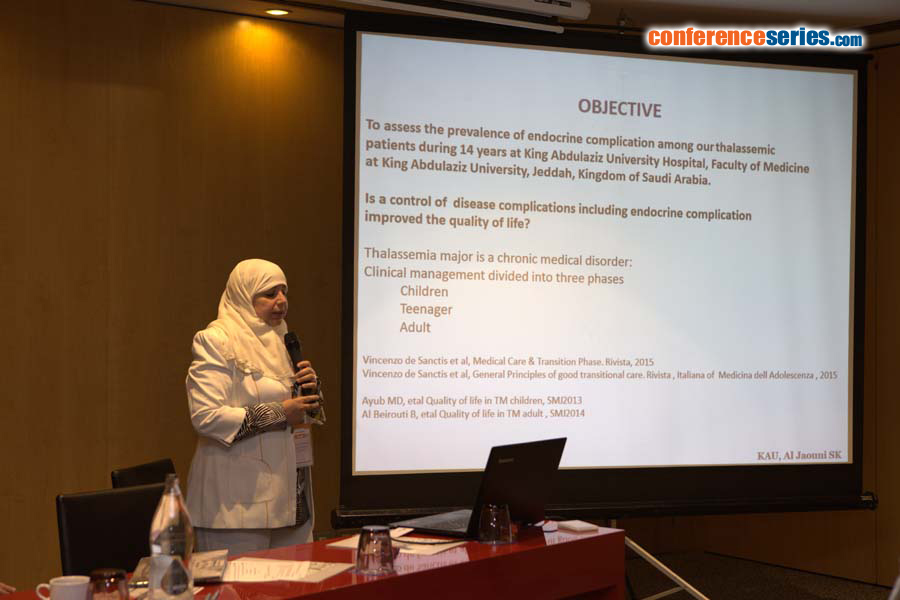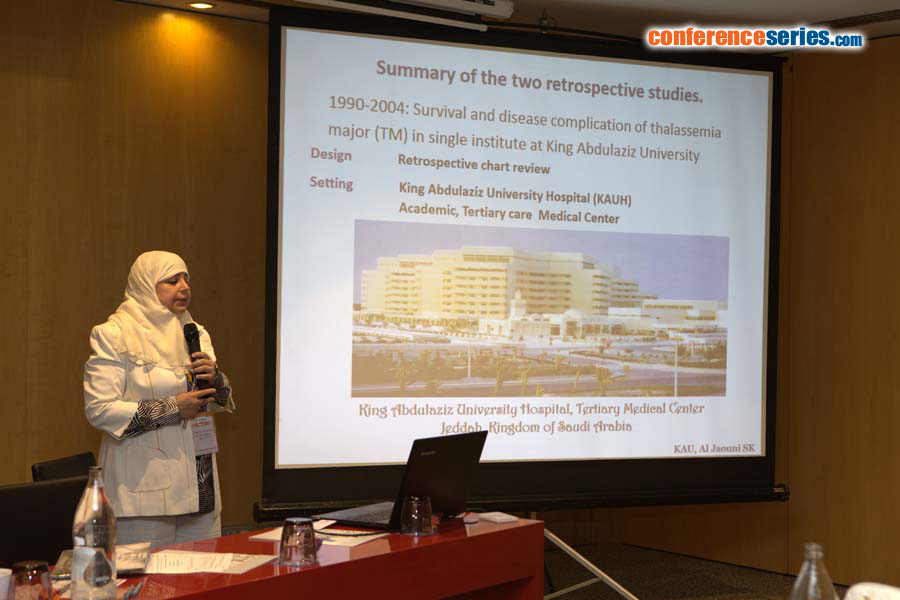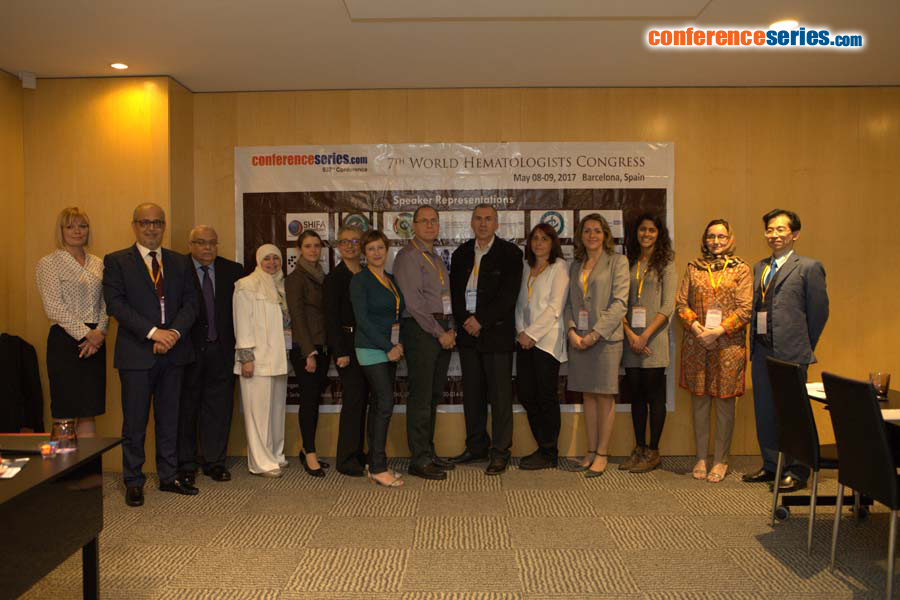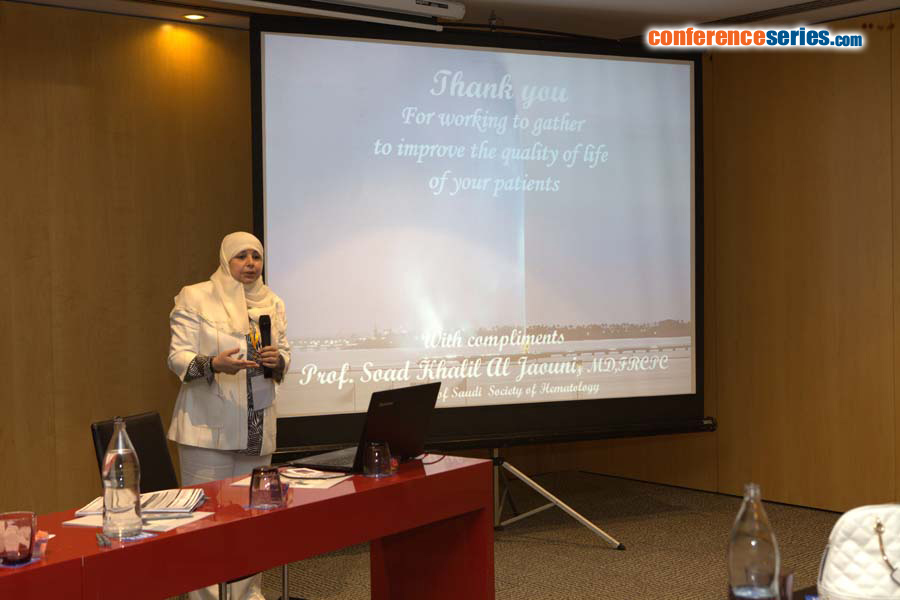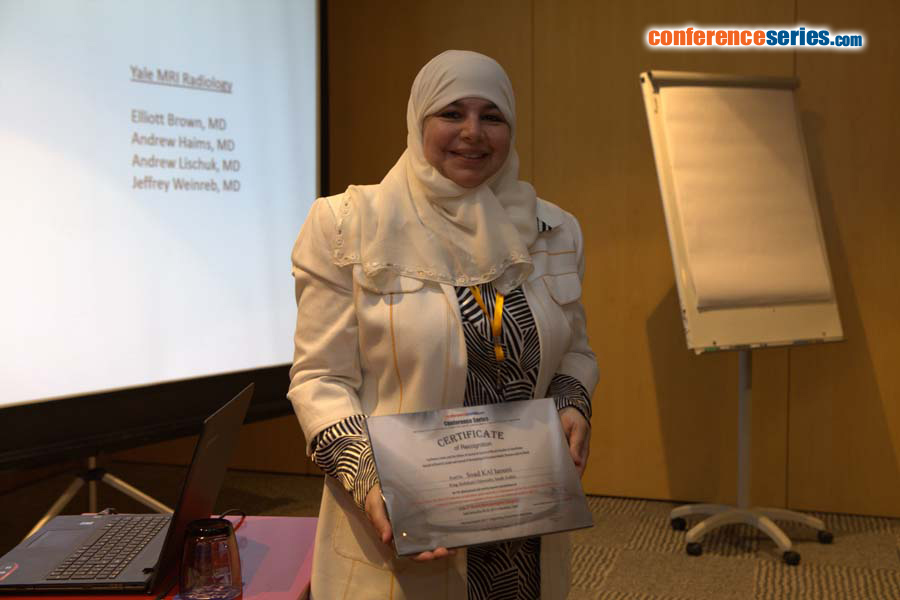
Soad K Al Jaouni
King Abdulaziz University, KSA
Title: The Saudi experience on the effects of endocrine complications and its morbidity in thalassemia and the role of collaboration with international network of clinicians for endocrinopathies in thalassemia and adolescent medicine (ICET-A)
Biography
Biography: Soad K Al Jaouni
Abstract
Introduction: Endocrine dysfunction in thalassemia is a common complication due to excessive iron overload and sub-optimal chelation. Endocrine dysfunction shows disturbances in growth pubertal development, abnormal gonadal functions, impaired thyroid, parathyroid, adrenal functions, diabetes. Bone complications are commonly encountered.
Method: A total of 278 patients were enrolled, the endocrine complications were increased with age and iron overload. Four patients (1%) died due to endocrine dysfunction. From 1990 to 2004, survival and disease complication of thalassemia major (TM) was seen in single institute at King Abdul Aziz University Hospital (KAUH), Jeddah, Saudi Arabia. From 2006 to 2010, endocrinopathies in children and adolescents with beta thalassemia major was seen at KAUH when total of 143 patients enrolled in the study.
Results: Vitamin D3 deficiency was the commonest (56%) endocrinopathy in both children and adolescents with áµ-TM, followed by puberal delay (29.37%) and hypothyroidism (21%); 7.6% of the patients had no endocrinopathies, and 45.5% had 3 or more endocrinopathies. Growth hormone deficiency was observed in 12.58% of the patients. The overall mean and SD serum ferritin levels were 3400.86 and 3067.43 ng/mL, respectively. Iron overload worsened as the children grew older; the mean and SD serum ferritin levels were 2893 and 1919 ng/mL, respectively for pre-adolescents and 4299 and 4276 ng/mL, respectively for adolescents (p=0.0368).
Conclusion: Comprehensive care with early detection and recognition of disease complication and appropriate transfusion regimen and chelation therapy are the keys to managing, preventing disease complication improve quality of life on thalassemia.

